#industry research
Text
The UAE market is now a global trade hub for many niches. Find out what the future holds for your business with Researchers.me!
0 notes
Text
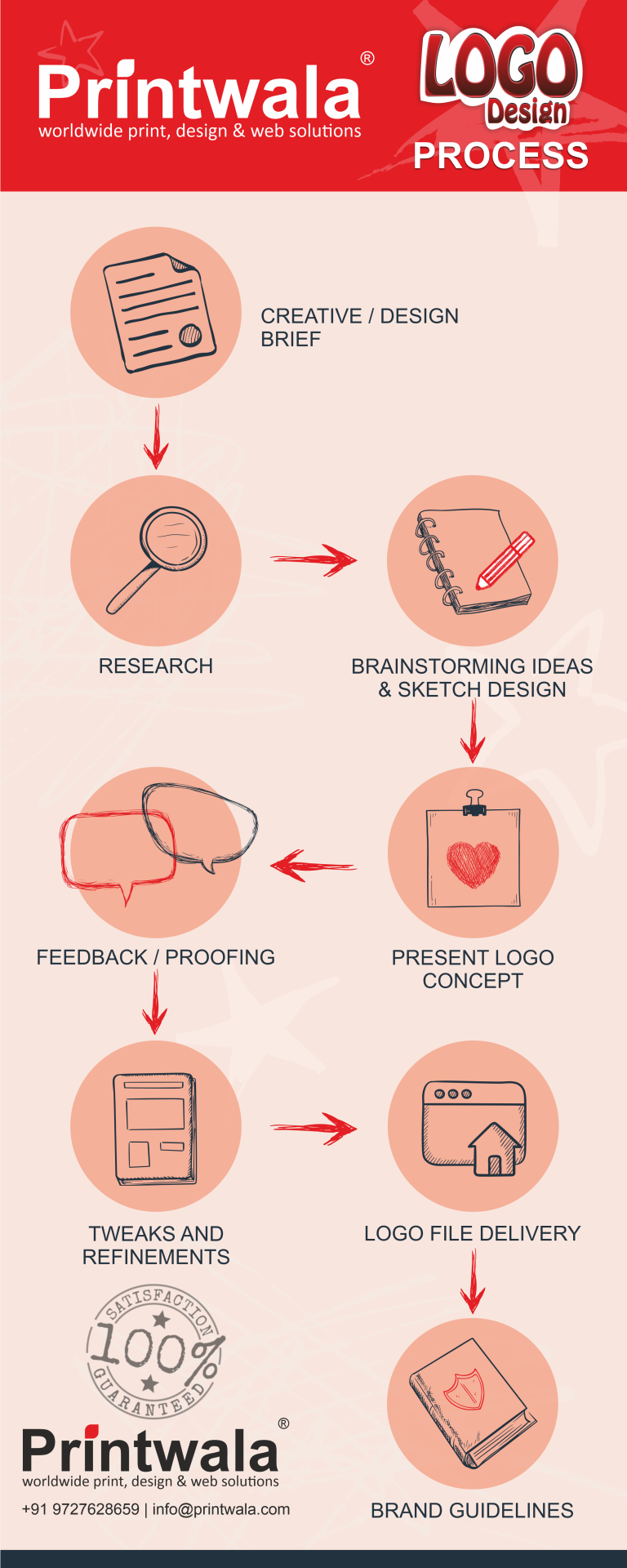
The infographic provides a comprehensive look into Printwala's meticulous logo design process, offering worldwide print, design, and web solutions. Initiating with a "Creative/Design Brief," they capture the client's vision and brand aspirations. This is followed by an in-depth "Research" phase to understand industry nuances and analyze competitor designs. During the "Brainstorming" phase, innovative ideas are sketched and conceptualized. The "Feedback/Proofing" stage ensures alignment with client expectations. Subsequently, the "Present Logo Concept" showcases potential finalized designs. The iterative "Tweaks and Refinements" phase ensures perfection. The journey concludes with "Logo File Delivery," ensuring clients receive the best quality, and "Brand Guidelines" are provided for consistent brand representation.
#logo design#logo#design#Printwala#Logo design#Branding process#Design brief#Industry research#Brainstorming#Sketch design#Feedback#Proofing#Logo presentation#Design refinement#Logo delivery#Brand guidelines#Worldwide solutions#Web design#Print solutions#Design workflow#Conceptualization#Logo iteration#Brand consistency
1 note
·
View note
Text
Unravelling the Expanding Landscape of Market Research in India
The size of the market research industry is rapidly expanding, driven by factors like rising consumerism, data-driven insights, and technological advancements. As businesses recognize the intrinsic value of consumer insights, market research becomes a strategic imperative for decision-making and customer-centric strategies.
#Analysis#awareness#Brand Strategy#business#business insights#competitive analysis#Consumer behavior#data#data analysis#discover#dynamic market#exploring#growth#India#industry#industry research#insights#landscape#market analysis#market dynamics#market growth#Market intelligence#market opportunities#market outlook#market report#market research#market segmentation#market size#market statistics#market study
0 notes
Text
the thing is there's like, a point of oversaturation for everything, and it's why so many things get dropped after a few minutes. and we act like millennials or gen z kids "have short attention spans" but... that's not quite it. it's more like - we did like it. you just ruined it.
capitalism sees product A having moderate success, and then everything has to come out with their "own version" of product A (which is often exactly the same). and they dump extreme amounts of money and environmental waste into each horrible simulacrum they trot out each season.
now it's not just tiktokkers making videos; it's that instagram and even fucking tumblr both think you want live feeds and video-first programming. and it helps them, because videos are easier to sneak native ads into. the books coming out all have to have 78 buzzwords in them for SEO, or otherwise they don't get published. they are making a live-action remake of moana. i haven't googled it, but there's probably another marvel or starwars something coming out, no matter when you're reading this post.
and we are like "hi, this clone of project A completely misses the point of the original. it is soulless and colorless and miserable." and the company nods and says "yes totally. here is a different clone, but special." and we look at clone 2 and we say "nope, this one is still flat and bad, y'all" and they're like "no, totally, we hear you," and then they make another clone but this time it's, like, a joyless prequel. and by the time they've successfully rolled out "clone 89", the market is incredibly oversaturated, and the consumer is blamed because the company isn't turning a profit.
and like - take even something digital like the tumblr "live streaming" function i just mentioned. that has to take up server space and some amount of carbon footprint; just so this brokenass blue hellsite can roll out a feature that literally none of its userbase actually wants. the thing that's the kicker here: even something that doesn't have a physical production plant still impacts the environment.
and it all just feels like it's rolling out of control because like, you watch companies pour hundreds of thousands of dollars into a remake of a remake of something nobody wants anymore and you're like, not able to afford eggs anymore. and you tell the company that really what you want is a good story about survival and they say "okay so you mean a YA white protagonist has some kind of 'spicy' love triangle" and you're like - hey man i think you're misunderstanding the point of storytelling but they've already printed 76 versions of "city of blood and magic" and "queen of diamond rule" and spent literally millions of dollars on the movie "Candy Crush Killer: Coming to Eat You".
it's like being stuck in a room with a clown that keeps telling the same joke over and over but it's worse every time. and that would be fine but he keeps fucking charging you 6.99. and you keep being like "no, i know it made me laugh the first time, but that's because it was different and new" and the clown is just aggressively sitting there saying "well! plenty of people like my jokes! the reason you're bored of this is because maybe there's something wrong with you!"
#this was much longer i had to cut it down for legibility#but i do want to say i am aware this post doesnt touch on human rights violations as a result of fast fashion#that is because it deserves its own post with a completely different tone#i am an environmental educator#so that's what i know the most about. it wouldn't be appropriate of me to mention off-hand the real and legitimate suffering#that people are going through#without doing my research and providing real ways to help#this is a vent post about a thing i'm watching happen; not a call to action. it would be INCREDIBLY demeaning#to all those affected by the fast fashion industry to pretend that a post like this could speak to their suffering#unfortunately one of the horrible things about latestage capitalism as an activist is that SO many things are linked to this#and i WANT to talk about all of them but it would be a book in its own right. in fact there ARE books about each level of this#and i encourage you to seek them out and read them!!! i am not an expert on that i am just a person on tumblr doing my favorite activity#(complaining)#and it's like - this is the individual versus the industry problem again right because im blaming myself#for being an expert on environmental disaster (which is fucking important) but not knowing EVERYTHING about fast fashion#i'm blaming myself for not covering the many layers of this incredibly complicated problem im pointing out#rather than being like. yeah so actually the fault here lies with the billion dollar industries actually.#my failure to be able to condense an incredibly immense problem that is BOOK-LENGTH into a single text post that i post for free#is not in ANY fucking way the same amount of harm as. you know. the ACTUAL COMPANIES doing this ACTUAL THING for ACTUAL MONEY.#anyway im gonna go donate money while i'm thinking about it. maybe you can too. we can both just agree - well i fuckin tried didn't i#which is more than their CEOs can say
15K notes
·
View notes
Text
Coca-Cola insider spills the truth about how they gaslight the public. 🤔
#pay attention#educate yourselves#educate yourself#knowledge is power#reeducate yourself#reeducate yourselves#think about it#think for yourselves#think for yourself#do your homework#do your own research#do some research#ask yourself questions#question everything#coca cola#whistleblower#food industry#government corruption#fox news#news
355 notes
·
View notes
Text
Y'all regularly send in questions wanting to know how to report concerns you've observed at zoos you've visited. I've been able to point people at the USDA (regulatory) option, but with regard to accrediting groups I haven't had a good answer. I spent the last six months or so really digging into why there hasn't been a good answer. What I've found is that the majority of zoological accrediting groups in the United States don't provide any way for the public to report issues they've observed at accredited facilities, and none of said organizations have a mechanism for truly supporting / protecting staff who might choose to report issues at their own facilities. Which is. not great.
I wrote a whole Substack post about it a few days ago, arguing that in order to remain credible institutions accrediting groups must facilitate public reporting, anonymous reporting, and commit to enforcing penalties for any retaliation against staff who choose to utilize the option. I'm linking it below for anyone who is interested in all the details. CW at the beginning for animal abuse mentions - I started the piece by discussing a truly egregious welfare situation that occurred last year at a Miami facility, which might have been prevented or at least caught earlier if the two groups that accredit the facility had had a reporting mechanism in place.
What I want to talk about here, though, is specifically why accrediting orgs need to not only have an anonymous reporting option for staff, but why they must ban retaliation and penalize any facility that does it anyway. Whenever something terrible happens at a zoo or sanctuary, people always ask "why didn't the staff say something?" And the answer is, basically, because taking that risk can get you not just fired, but blacklisted from the field. People literally end up having to choose between their careers and making noise about issues that aren't being resolved, and that's absolutely not freaking okay. But I want to explain for you the extent of the issue.
If you're not industry, something you might be surprised to learn is that most zoo staff don't have any special reporting options above and beyond what the public does. Most zookeepers and other low-level staff never interact with people from accrediting groups except during an actual inspection - so if there's a problem, it's not like they know someone they can back-channel a concern to if they don't feel safe reporting it publicly. And for the most part, reporting things your facility is doing to an accrediting group will always be considered inappropriate and probably get a keeper in trouble (even if it's a really valid issue).
The zoological industry runs on a strongly hierarchical system. Staff are expected to “stay within their lanes” and work within the established bureaucracy to resolve issues. Deviating from this, if staff feel like management are suppressing issues or something needs to be addressed urgently, is very heavily frowned upon. Basically, going around management to bring something to an accrediting group (or USDA, or the media) is seen as indicating that your facility has failed to address a problem, or that the individual making the report feels they know more than their superiors. At most places, no matter how extreme an issue may become, there's never a point at which it would be acceptable for a staff member to reveal a facility’s internal issues to their accrediting body.
The thing is, attempting to resolve issues through the proper internal channels at a facility doesn't always work! It can result in an issue being covered up (especially if the company is kinda shady) or suppressed rather than addressed. If staff decide to push the issue, it can really backfire and jeopardize their job, because it's expected that if management says something is fine, staff need to acquiesce and go along with it.
There have been a couple high-profile examples of this in the last decade: the incident I mention in my Substack where new management at the Miami Seaquarium decided to starve dolphins to coerce them into participating in guest programs, and an issue at the Austin Zoo five-ish years ago where the director was perpetuating serious welfare issues and ignoring staff feedback. In both cases, there's always the questions of where the accrediting group was. We don't know anything about what happened with the Seaquarium (it's been over six months since the USDA report documenting the diet cuts was released and AMMPA and American Humane haven't said a thing), but I remember hearing that ZAA had no idea what was happening at Austin because nobody had reached out to them about it.
This is why I'm arguing that all zoological accrediting groups need to make visible reporting options and make sure staff feel safe enough to use them! If you've got a facility perpetuating or not dealing with major issues, it's pretty probable that they're going to be unhappy if their staff reports those issues to any oversight body. That's not a situation where it's currently safe to speak up right now - and four out of five zoological accrediting groups in the US don't have standards prohibiting retaliation against staff for bringing up issues like that! (Surprisingly, it's not AZA. It's the sanctuary accrediting group, GFAS). Without any option for internal reporting, issues may not get addressed - which hurts animal welfare - or people risk losing their job, possibly their entire career in the field (which is a huge part of people's identities!), and their financial stability to advocate for their animals.
Currently, the two accrediting groups that do have reporting options (AZA and GFAS) stay they'll attempt to keep reports anonymous, but acknowledge it may not be possible to do so. (Which tracks, because zoo jobs are highly specialized and only a few people may be exposed to an issue). However, only GFAS prohibits facilities from retaliating against people who make reports. On top of that, there's absolutely no transparency about what happens next: GFAS, ZAA, AMMPA and AH have no information about how the process transpires and if someone making a report will get any information back about what happened. AZA straight up says that all accreditation stuff is proprietary (read: confidential) so you just have to trust that they dealt with it appropriately. Just yeet your report into the void and hope the groups doing oversight handle it correctly when there's no accountability? That's... not a great look for animal welfare concerns.
I hope the industry chooses to fix this problem. I hope it chooses to invest in transparency and increased credibility. I don't know what I expect, but I'd like to see these accrediting groups do the right thing.
My full write-up on how accrediting groups in the US handle reporting and concerns (or don't) is linked below.
2K notes
·
View notes
Text
Editor and SEO Researcher Dr. Jerry Doby Releases Book for Digital Journalists and Newsrooms
Excited to have released my first book...would love to know your thoughts! SEO Essentials: A Journalist's Handbook is as up to date as it gets!
For his first published book ever, editor and published SEO researcher Dr. Jerry Doby just released SEO Essentials for Online Magazines: A Journalist’s Handbook on MagCloud. This book is based on his published research paper SEO-optimized Writing: Removing the Mystery, featured in the Cognitionis Scientific Journal (2023) and sponsored by Logos University International (UNILOGOS).SEO Essentials…

View On WordPress
#authors#books#celebrity#digital newsroom#Education#entertainment industry#film#how to#journalism students#media#music#research#search engine optimization#young journalists
366 notes
·
View notes
Text


#spotify price increase#streaming services#spotify premium#subscription price hike#audio streaming#spotify subscribers#digital music#spotify duo#spotify family plan#antenna research#video streamers#music industry#spotify listeners
165 notes
·
View notes
Note
when they've got interpreting spiderman noir under a specific cultural lens at the function [picture of me going insane]
I cant help myself.. what can i say. And since you've mentioned some research going on behind the scenes.. do you have any fun interpretations? Or even anything fun about the 1800s!

OH HI
Hm. I don't have anything as fun as historical dancing, but I suppose this does give me the excuse (thabk u) to blab about Noir's childishness.
(wow putting this under the cut bc it got longer than I thought it would LMAO)
I think what a lot of people (including Noir's contemporary writers and yes even the spiderverse interpretation) fall for when trying to read Noir's character is the imitation of his idea of what an adult is, that he hides behind. Like Noir's persona is incredibly exaggerated. He's playing pretend. Look here, he's practicing.

A lot of his persona as Noir is imitation! Imitation of his uncle, of Urich, of the violence he's been exposed to. He's running around in his uncle's old uniform. Fundamentally misunderstanding WHY his uncle had been ashamed of it and his role in the war.

And then he goes ahead and steals Urich's alias because it sounds Cool (which is such a teenage thing to do jesus christ).

But like that imitation of The Adult isn't something that's limited to that exaggerated persona that Noir encapsulates. Peter himself is trying So Hard to be grown up and tough and responsible that it loops back around to him being a brat who would try the three guys in a trench coat trick. He even gets beat up for it when trying to defend his aunt. And I mean I've posted about him being a brat.
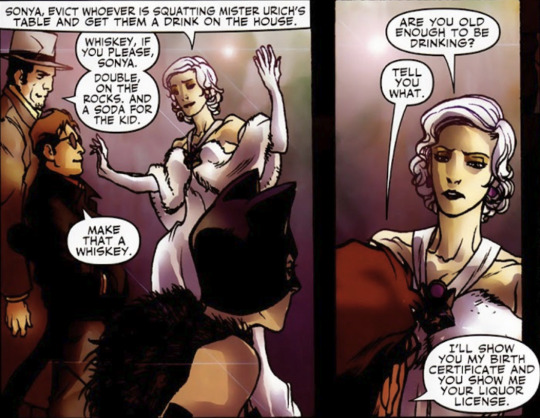
About how he looks at Urich as a Prime Example of what a strong and knowledgeable adult is (which is part of why he reacts so volatile in response to Urich showing he's not exactly as morally righteous as himself, he's wounded and let down). Whiskey? Whiskey sounds like someone Mature and Cool would drink, I'll have it too. And then proceeds to throw his drink at Osborn and laugh about it. The illusion was broken for me then.

But well it's not broken for everyone. I mean like obviously I poked at the contemporary writers, but I'm more talking about the other characters in the narrative. Mainly Urich and Felicia.

Urich taking Peter under his wing isn't entirely under the motivation to nurture Peter. I think it Becomes that, but he's really envious of that kid. He wants to see him lose that hope that he once had (ruh roh the opposite thing happened, being around the kid made YOU more hopeful Ben. Guess you gotta be good. Hope you don't die now).
Urich really is exposing him to an extremely harsh reality, and taking him places where adults are typically only allowed. He's letting Peter get a glimpse into what it's like, which will eventually enable Noir's tool of violence. All these tests will accumulate into what Peter thinks someone powerful and strong can be and do.

Then his problematic relationship with Felicia (writers I'm malleting you for this). He's clinging to her adulthood and the safety she represents, and he's young but she sees some adult strength in him. I mean she trusts him with the blackmail Urich gave her, which she really. Shouldn't, even if that's what Urich wanted.
Anyway, strength is something she's been consistently drawn to her in her partners. Strength to feel as her own. Even if it's to hers and others' detriment. There's also a part of Peter that's drawn to Felicia because Urich was. He's still honing in the good parts of Urich he wants to be.


I think the one person in the narrative who doesn't fall for it? Is Aunt May. You could argue it's just her being naturally motherly, but for someone who was about to be eaten alive she's pretty frank with Noir. I think she can see that that violence and exaggerated grittiness comes from someone inexperienced and young. Even if she can't consciously recognize the similarities between Noir's persona and Peter's protectiveness of her. I don't think she wants to see that. I actually have a short comic script about that, but it probably will never see the light of day.


Ugh he's like a cat puffing up to scare away a predator. It's fake!!!!! It's all fake!!!!!! He gets intimidated by JJ, he never ties his shoes, gets powers and then immediately guns to beat the shit out of Osborn, sings about the sandman when he's getting his face bashed in, crawls to Felicia all pathetic and sad, and he made a costume to run over roofs at night in.
And it's funny how he's forcing himself to grow up, but also really sad because all the things he's being exposed to is already forcing him to grow up. He's witnessing things no kid should ever see or experience.
Then there's the time period to consider. The aftermath of WWI, being in the midst of the Great Depression, and WWII just around the corner. He's faced incredible hardship and is going to continue to face so much hardship, and he's going to mature faster than he ever should have. It should have made him crash and burn Hard when he became an adult, and to me he still does because I'm ignoring everyone after ewaof LMAO.
As for my research on the 1800s NY that's for my own spider iteration run I'm working on, so not too related to Noir until I reach the 30's :3
Hope that was satisfying!!
#tw grooming#critter talks#asks#the moots#fool!!!!!!#spider man noir#character analysis#abt the research like logically I know the typical new yorker isn't gonna know abt the specificities of the original dutch colony#and intricacies that the boom of industrialization had on lower class communities#but it's less about that and more of digging my hands into the Soul of NY#because NY is so Intertwined with any spider#so I'm starting from the Very beginning and digging my way up. man y'all were a hot mess#it's really fascinating though working my way through documentaries and books. the list is long and the dent I've made is about an 8th ASDF#anyway MAYBE y'all will see spiderman undiscovered one day...ask me abt it again if y'all like miles being a detective w a shoulder demon#for now it's me my 55 of world building slides several character note docs and a to read list of about 20 books long#would like to go to NY citay one day & oogle at the stinky subway draw some storefronts and people watch but thats not in the budget rn#also trying to look for movies n shows that aren't exaggerations of the culture so if anyone has recommendations DO @ me please#wanna do her justice bc I care about her#ALSO FOOL I'M SO SORRY FOR TAKING A DAY TO ANSWER#had to get my thoughts togther
113 notes
·
View notes
Text
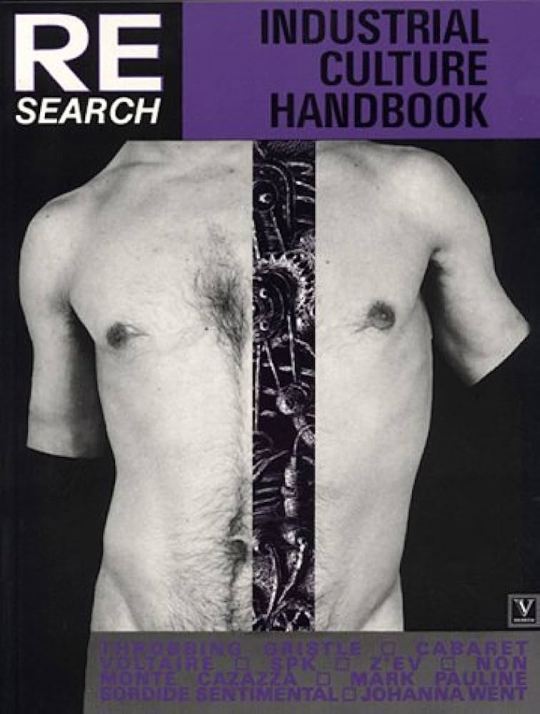
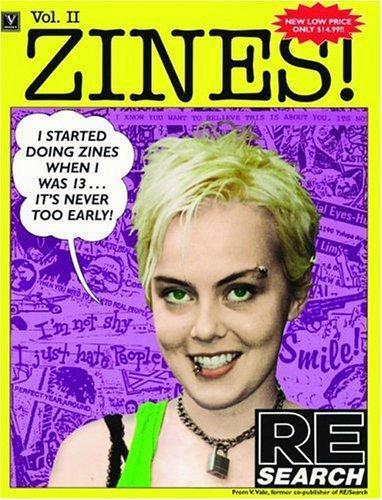

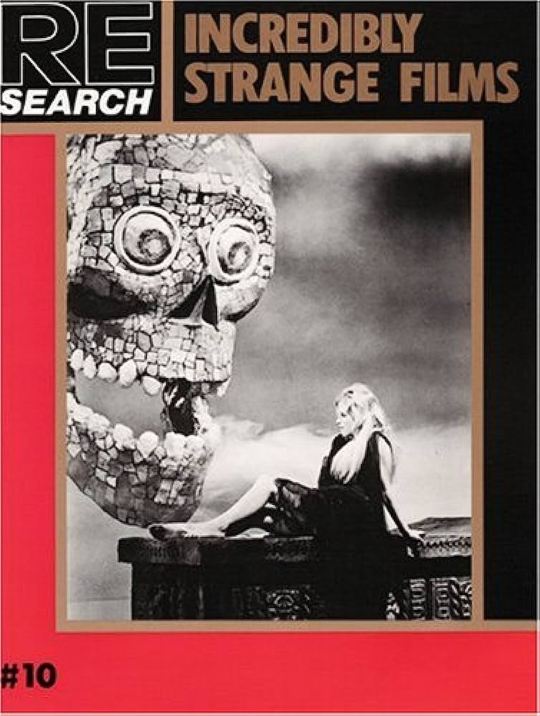
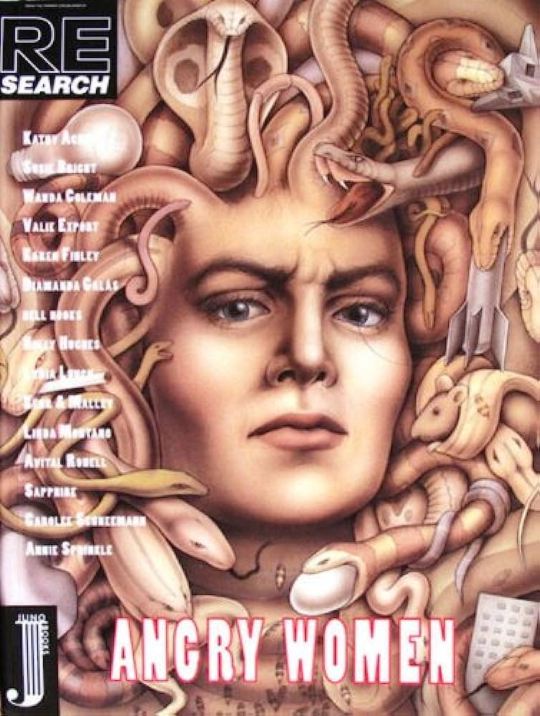
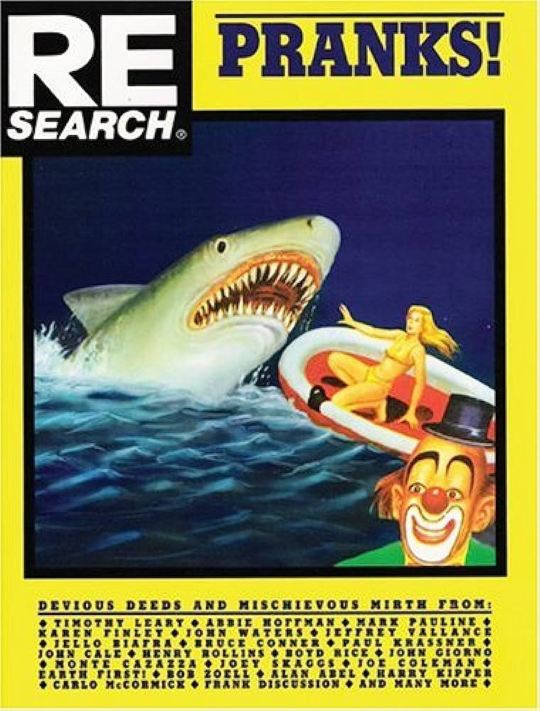
Re/Search
Here is a (nearly) complete collection of Re/Search books mostly on PDF.
Enjoy the Ballard. Learn about early Industrial culture. Be baffled by their attempt to cash in on the Swing trend of the early 2,000's. Be annoyed that they were partially responsible for extending Boyd Rice's career by decades. Marvel at once was and might possibly still be transgressive.
You can get it all from my Google Drive HERE
#research#re/search#v. vale#book#books#zine#zines#punk#industrial#transgressive#noise#experimental#spk
430 notes
·
View notes
Text

#IFTTT#Flickr#industry#engineering#science#research#chemistry#electricity#physics#mathematics#astronomy#1956#scientist#nuclearpower#atomicpower#theatom#atomsforpeace
39 notes
·
View notes
Text
Treatise on why No, the doctor just giving the narrator of Fight Club (full name) his requested sleep medication or sending him to therapy would not have Fixed Him
Firstly, saying giving him the insomnia meds would’ve fixed him ignores the reason he has insomnia in the first place. He is so deeply upset by his place in society that he literally cannot sleep. Drugging him to sleep would not change that. That, of course, is the easy, quick response.
But with regard to therapy? The biggest flaw is that it ignores a central tenet of the book. Part of what tortures the narrator and drives him to invent Tyler is that his feelings about this collective, systemic issue are constantly reduced to a Just Him thing. His seatmates ask what his company is. He’s the only one upset at the office. He gets weird looks if he says the truth of what he does. People will do anything in their power to pretend he is the issue, as an individual, because it is far scarier to consider the full implications of the systemic issues implied by what he is saying. Everyone treats it as if the issue is him, so he goes insane. He does anything to get someone to say, holy shit, that’s fucked up, what you’re a part of is wrong. In an attempt to feel any sort of vague sympathy and catharsis, he goes to support groups to pretend to be dying, because then at least people don’t habitually blame him for his anguish.
Saying therapy would fix him ignores that his problems are not individual. They are collective. It’s the reason the entire story resonates with people! Something deeply, unignorably wrong with society, where people would rather blame you for bringing it up than try and address it, because it feels impossible. I don’t blame people for this, really, because it IS scary. It’s terrifying to sit and feel like you’ve realized there’s something deeply, deeply wrong, but if you say something, people will get mad at you since it’s so baked into everything around you. Or, even if they agree, it’s easier to deal with the dissonance by pretending it’s individual.
And it’s not like that’s not the purpose therapy and medications largely serve, anyway. Getting into dangerous territory for this website, but ultimately, the reason the narrator was seeking medication was because it’s a bandaid. A very numbing bandaid. For these very large, dissonance causing problems, therapy does very little. Medications do what they always have, and distract you with numbness or side effects. It’s a false solution. He is seeking an individualized false solution because he has been browbeaten with the idea that this is an issue with him alone, when it's plainly clear it's not.
Don't get me wrong. Obviously he has something wrong with him. But it's a product of his situation. It is a fictional exaggeration of a very real occurrence of mental illness provoked by deep unconscionable dissonance and anguish. There is a clear correlation between what happens and his mental state and his job and how isolated he is.
The thing is, even if he were chemically numbed, I do think he would’ve lost it regardless. Many people on meds find they don’t fix things. For reasons I’ll get into, but in this case because even if numbed or distracted, once you’ve learned about deep, far reaching corruption in society, it’s very hard to forget. Especially if, in his case, you literally serve as the acting hand of this particular variety. He’s crawling up the walls.
So why do people say this? Well, it's funny I guess. Maybe the first time or whatever. But also, often, they believe it, to a degree. Maybe they've just been told how effective therapy and meds are for mental illness, they believe wholeheartedly in The Disease Model of Mental Illness, maybe they themselves have engaged with either and have considered it successful. Maybe they or someone they know has been 'saved' by such treatments.
But in all honesty.... What therapy can help with is mentality, it's how you approach problems. For issues on a smaller scale, not meaning they are easier to deal with my any degree, but ones that are not raw and direct from deep awareness of corruption; these are things that can be worked through if you get lucky and get an actually good therapist who helps build up your resiliency. But when your issue is concrete, something large and inescapable? It's useless. At best it can help you develop coping mechanisms, but there is a limit for that. There is a point where that fails. To develop the ability to handle something like this requires intense development of a comfort with ambiguity and dissonance and being isolated and a firm positioning of your purpose and values and and belief in wonder and all the other shit I ramble about. The things that the narrator lacks, which lead him to taking an ineffectual death knell anarchist self-destruction path. Therapy, where the narrator is, full of the knowledge of braces melted to seats and all the people that have to allow this to happen? It fails.
And meds — meds are a fucking scam. We know the working mechanism of basically none of them, the serotonin receptor model was made up and paid its way into prominence. We have very little evidence they're any better than placebo, and they come with genuinely horrific side effects. Maybe you got lucky. I did, on some meds. On others? I don't remember 2018. The pharmaceutical industry is also known for rampant medical ghostwriting, and for creating 'off-label' uses for drugs that have gained too many protests in their original use, then creating a cult of use to then have 'grassroots' campaigns for it to be made a label use (ie, legitimize their ghostwritten articles with guided anecdotes).
The DSM itself is basically a marketing segregation plot. It's an attempt to legitimize the disease model by isolating subgroups of symptoms to propose individualized treatments for subgroups that are not necessarily all that separate. But if the groups exist, you can prescribe more and different medications, no? Not to mention, if you use the disease model, you can propose that these diseases are permanent, or permanent until treated, considered more and more severe to offset and justify the horrific side effects of the medications. Do you know why male birth control doesn't really exist? Same reason. They can justify all the horrible side effects for women, because the other option is pregnancy. For men, it's nothing.
And they're not bothering to invent new drugs without side effects. When they invent new drugs it's just because the last one got too bad of a name, or they can enter a new market. Modern drugs don't work any better than gen1 drugs. They still have horrific side effects. At best, the industry will shit out studies saying the old one was flawed (truth) so they can say this new gen will be better (lie). They're doing it with ssris right now.
Fundamentally, the single proposed benefit of any of these drugs is that they numb you. To whatever is torturing you. It's harder to be depressed if you can't feel it, or if you just can't muster the same outrage. Of course, there is people who find that numbness to be helpful, or worth it. But often, it's stasis. For the people who have problems that can be worked on, it serves as a stopgap to not actually work on said problems. The natural outcome of the disease model is stagnation for those whose need is to develop skills and resiliency. It keeps them medicalized and dependent on the idea that they're diseased and incapable. Profitable. Stuck in the womb.
I’ve been there. It’s easier, to wallow, and resist growth because it’s difficult and painful and unfair and cruel and you can think of five billion reasons to justify your languishing. But don’t listen to anyone who tells you you’re just permanently damaged, no matter how nicely they word it, no identity or novel pathologization, no matter how many benefits they promise, especially if they swear up and down some lovely expensive medications with little solid backing and plentiful off-label usage and side effects that’ll kill you. Some days it feels like they want us all stuck in pods, agoraphobic and addicted to the ads they feed us to isolate the markets for the drugs they’ve trained us to beg them to pump us with. Polarization making it as easy as flashing blue light for go, red like for stop, or vice versa. I worry about the kids, for fucks sake. That’s a bit dark and intense, and I apologize. But I want you (generic) to understand, there is a profit motive. Behind everything. And they do not mean well. They do not care about your mental health or your rights or your personhood or your growth. They care about how they can profit off of you.
For those struggling with immovable, society problems, like the narrator grappling with how his job fits into and is accepted by society while his rejection and horror in the face of it does not, it can work about as well as any other drug addiction. Your mileage may vary. From what I've seen, recovering from being on prozac for a long time can be worse than alcohol. They put kids on this shit. They keep campaigning for more. Off label, again. A pharmaceutical company’s favorite thing to do has to be to spread rumors of someone who knows someone who said an off label use of this drug helps with this little understood condition. Or, in the case of mental illness, questionably defined condition. And like, damn, I know I'm posting on the 'medicalization is my identity' website so no one will like all this and has probably stopped reading by now, but yall should be exposed to at least one person who doubts this stuff. Doesn't just trust it. Because I mean, that's the thing right?
It's so big. What would it mean, for this all to be true? Yeah, everyone says pharmaceutical companies are evil and predatory and ghostwriting, but to think about what that really entails. Coming back to the book, everyone knows the car lobby is huge and puts dangerous vehicles through that kill people. What does it mean if the car companies all hire people to calculate the cost of a recall and the cost of lawsuits? No one wants to think about the scale that means for people allowing it or the systems that have to be geared towards money, not safety like they say. Hell, even Chuck misses the beat and has the narrator threaten his boss with the Department of Transportation. And shit, man, if every company is doing this, you think Transportation doesn't know? That they give a fuck? You're better off mailing all the evidence to the news outlets and hoping they only character assassinate you a little bit as they release the news in a way that says it's all the fault of little workers like you, not the whole system. Something something, David McBride, any whistleblower you feel like, etc.
So I don't blame you, if your reaction is "but but but, that can't be right, people wouldn't do it, they wouldn't allow it" or just an overwhelming feeling of dread that pushes you to deny all of this and avoid thinking about it. Just know, that's in the book. That's all the seatmates on the flights. That's all his fellow officemates. It's easier to pretend, I know.
But think about, how the response fits in with the themes of the book. The story, as a movie too. What drives the narrator’s mental breakdown? How would you handle being in his position? How would you handle being his seatmate? It’s easy to say you’d listen. But have you? Have you had any soul wrenching betrayals of how you thought society worked? How about a betrayal by the thing that promised to be the fix of the first? Can you honestly say you wouldn’t follow that gut instinct, saying follow what everyone says, that person must just be crazy, evil, rude, cruel, whatever it is that means you can set what they said aside?
For a lot of people, they can do that, I guess. Set it aside. Reaching that aforementioned state of managing to cope with the dissonance and ambiguity and despair is very hard. The narrator made the Big Realization, but he couldn’t cope. He self-destructed. Even when people don’t make the big realization consciously, they’re already self-destructing. It’s hard to escape it when it feels easier than continuing anyway. When it feels like the only option,
Would therapy fix the narrator of Fight Club? Would meds fix the narrator of Fight Club? No. He knows too much. All meds will do, by the time he’s in the psych ward, is spiritually neuter him. A silly phrase, but really. Take the wind out of his sails.
Is he fixed if he doesn’t try to blow up town? If he just shuts up and settles in and stops costing money? If he still can’t cope with the things he’s unearthed? Do you see how this is a commentary in a commentary in a commentary?
Fight Club is an absolutely fascinating story because of this. The fact that it addresses the fallout of knowing. The isolation. The hopelessness. The spiral that results from a lack of hope. This is, I think, what resonates most with people, even if not consciously. Going insane because you’ve discovered something you wish you could unknow. It’s a classic horror story. Should our society be lovecraftian evil? I don’t think so.
Do I think changing it will be easy? No. Lord knows a lot exists to push people who make these sorts of Realizations towards feelings of individuality and individualized solutions and denial and other distractions and coping methods. And to prevent people who make One realization from expanding on it and considering further ramifications. Fight Club itself gets into this; the isolation of men being a strict part of the role society shapes for their sex leaves them very vulnerable to death fetishes, in a sense, and generally towards self destructive violence. It helps funnel them away from substantial change and towards ineffectual change. Many things, misogyny, racism, serve to keep people isolated from one another, individualized, angry, and impossible to work with. Market segregation; god knows even appealing on those fronts has become such a classic ploy that companies do it now, the US military frames its plundering that way, etc.
I’ve wandered a bit but ultimately, my point is this: Fight Club is a love letter to the horrors of critical thinking, and the importance of not falling into the trap of self destruction and hopelessness in the face of it. The latter is why Tyler was an anarchoterrorist instead of anything useful. The latter is why it was a death cult. It’s important to work through the horrors of critical thinking so you can do it, and stand on the other side ready to believe in each other. It’s worth it.
#fight club#my writing#uh. sorta#If you disagree with me it's fine btw. That's a given for me but I realize that's not usual for this website#my big desire is always to provoke thought and get people to think about why they think things#not necessarily to get them to agree with me. though obviously like any person i enjoy that#it was nice to type this out#also#aside from the prozac withdrawals mention and my own experience w memory loss (hilariously not even the most major of my beefs with the#medical industry! or even just the mental health industry! but its an easy nonoffensive one so#anyway i kept it nonspecific because if you go specific it becomes easier for people to just go 'oh well its That that's the problem and i#dont need to reflect at all on my drug/condition/issue/etc'#which ppl will anyway ofc. but yk#maybe theyll find it easier to ignore without the horrific specific examples but i want to leave it broad because 1. doing research and#going past the first thing you find and confirmation bias stuff is good 4 u#second. it's better imo to leave it more open for people to try and apply it broadly#whew ANYWAY#a bonafide Rant#i shouldve put#anti psychiatry#in the first few tags. i havent really looked on tumblr to see what the community 4 that is like on here because it feels like an oxymoron#on this website#but im sure it probably exists even if its used for smth else#(please change)
67 notes
·
View notes
Text
Coca-Cola is the multipurpose liquid that's good for so many things except for human consumption. 🤔
#pay attention#educate yourselves#educate yourself#knowledge is power#reeducate yourself#reeducate yourselves#think about it#think for yourselves#think for yourself#do your homework#do some research#do your own research#ask yourself questions#question everything#coca cola#cola#coke#multipurpose cleaner#industrial cleaning#corruption#news
317 notes
·
View notes
Text
open ai made a little post about how they chose their chatbot voices and two things stood out to me:
a) I am genuinely pleased and surprised that the voices come from specific real people that they hired and paid, rather than being built off of all of the data open ai has scraped. the voice for siri did one job for one company 20 years ago and now she is literally everywhere without ever being compensated by apple or even acknowledged as the voice. there's simply no way she was paid enough in that original job. whereas, open ai says "each actor receives compensation above top-of-market rates, and this will continue for as long as their voices are used in our products." this could mean literally anything (what market rate are we going above? does continue mean they get residuals or get paid for doing more sessions?) but, christ, at least the actors are doing it with full knowledge of what their voices are being used for and can decide for themselves if the compensation is enough
b) the post talks about working with "award-winning casting directors" to get the voices. first of all, yay for paying casting directors! we love to see it. but they also say the CDs received over 400 submissions in a week and they state that like a big number and it's just...not at all. and look, without knowing the intricacies of the casting process, it's hard to know what approach the CDs took - it's very possible they were selective from the jump and 400 is a lot from the pool they were tapping. 400 would be a lot if you were going to the agencies directly and asking for names, but there's just no way in hell open ai went after big stars for this. so it would've been a pool of unknowns. in which case, 400 is laughably small. even if you're not using the big casting sites like actorsaccess, I've worked on projects with CDs and their own internal systems where we've gotten over 100 submissions for a single role. I've posted roles on casting sites and received literally thousands of submissions in just a few days
look, I have a very limited perspective on this - I am not a casting director (imo, one of the most important and undervalued jobs in hollywood) and I, in fact, hate the process of casting with a passion. but 400 just seemed like such a tiny pool to pull from and, idk, it heartens me! it's heartening to think that there's very little interest from actors and agents to be doing this kind of stuff. and absolutely no shade to the actors who did--I want actors to get their bag however they want as long as it's, like, safe sane and consensual, you know? but there's something encouraging about thinking that open ai hired some big casting agency to get their foot into the voice acting door and people didn't come running
#ai#entertainment industry#lauren takes too long to say things#I am not anti-AI#mostly because I can tell when I've lost a war and need to figure out how to live with my new overlords lol#but also bc chat has genuinely been helpful for writing research!#(more in the sense that it helps me narrow down what I need to do real research on)#(bc the information it gives is often wrong)#but I am of COURSE concerned about how it's going to affect my industry#and if you've been following me for a while you probably saw my sag posting last summer during the strike#and given the contract sag got around AI#actors disinterest is THEE cudgel with which we will beat this stuff down#so the fact that the most popular AI company in the world had 400 people to choose from#is nice to my ears!!!!#(assuming of course that I'm correct about their process)#plus I'm just so RELIEVED that they actually hired people to do this#that's all that really matters - consent#if you're an actor and you give your voice to an AI company that will use it forever#as long as you KNOW that#and you have someone looking over a contract for you#more power to you!
57 notes
·
View notes
Text
youtube
This film exposes the climate alarm as an invented scare without any basis in science. It shows that mainstream studies and official data do not support the claim that we are witnessing an increase in extreme weather events – hurricanes, droughts, heatwaves, wildfires and all the rest. It emphatically counters the claim that current temperatures and levels of atmospheric CO2 are unusually and worryingly high. On the contrary, compared to the last half billion years of earth’s history, both current temperatures and CO2 levels are extremely and unusually low. We are currently in an ice age. It also shows that there is no evidence that changing levels of CO2 (it has changed many times) has ever ‘driven’ climate change in the past. Why then, are we told, again and again, that ‘catastrophic man-made climate-change’ is an irrefutable fact? Why are we told that there is no evidence that contradicts it? Why are we told that anyone who questions ‘climate chaos’ is a ‘flat-earther’ and a ‘science-denier’? The film explores the nature of the consensus behind climate change. It describes the origins of the climate funding bandwagon, and the rise of the trillion-dollar climate industry. It describes the hundreds of thousands of jobs that depend on the climate crisis. It explains the enormous pressure on scientists and others not to question the climate alarm: the withdrawal of funds, rejection by science journals, social ostracism......

Research More ~ https://www.freedom-research.org/p/a-must-watch-climate-the-movie-the
#Climate: The Movie (The Cold Truth)#Youtube#Martin Durkin#Freedom Research Link#trillion-dollar climate industry#Green New Scam#Research D Truth#Question Everything
34 notes
·
View notes